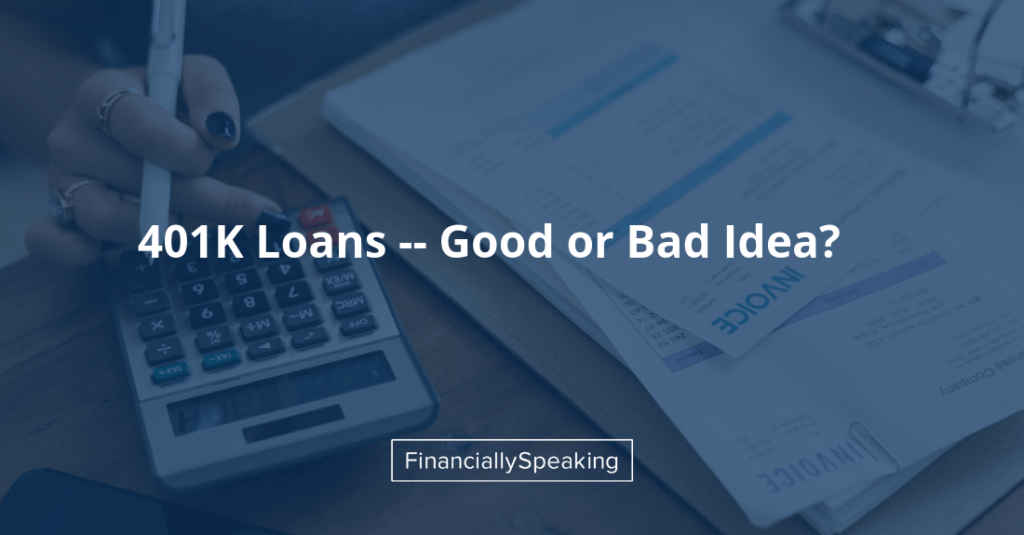Should you borrow from your 401K?
Generally, it’s not a good idea to borrow from your 401K but there are certain circumstances in which it can make sense. Before I explain, here are the basic mechanics of how a 401K loan works.
- Many 401K plans allow current employees to borrow some percentage of their balance. Your plan will indicate the allowed amount.
- You must pay interest (to yourself) and make regular payments that typically have a repayment term no longer than 5 years. Again, your plan will indicate the allowed rate and term.
- If you leave your employer, you will need to repay the loan in full before you file that year’s tax return. You cannot borrow from an old 401K plan if you’re not currently employed at that company.
Why is it usually a bad idea?
- Your 401K plan may charge fees that may be more costly than other options.
- If your loan is not repaid, the IRS will treat the loan as a distribution and you will owe income tax and, in most cases, a penalty on the outstanding amount. This will be costly and, you’ll end up with less money saved for retirement.
- Some plans may not allow you to make contributions while you are repaying a loan. That can also be costly, especially if your employer offers a match that you’re now not receiving.
When might it make sense?
- If your credit score is poor. There’s no credit check when you borrow from yourself so this may be the only source of credit available to you, or the least expensive option.
- If you have the confidence that your job is secure and the discipline to consistently repay this loan in a relatively short period.
- If your employer’s plan provides these loans with few administrative fees.
- If you have access to another source of credit in an emergency, even if it is expensive. In that case, you would have somewhere to turn if you were to leave your job and were faced with having to quickly re-pay the loan in full.
Don’t borrow from your 401K if you can avoid it. While it may be tempting, make it your last resort, rather than the first place you turn when you need money.
